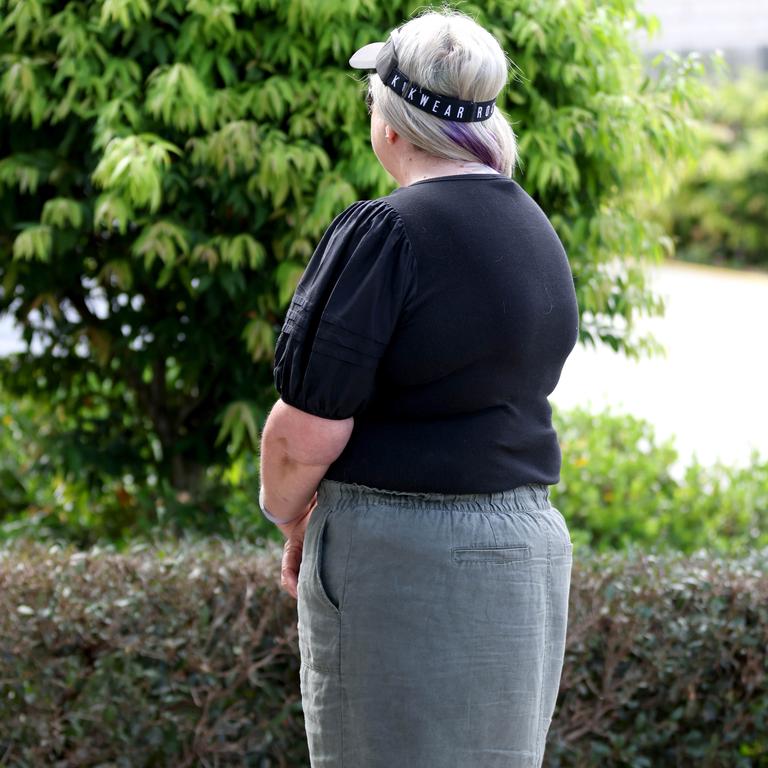Mother of juvenile offender says tougher sentencing saved him
A woman who six months ago asked for her carjacking son to be locked up says harsher sentencing and other support has helped rehabilitate him.

Police & Courts
Don't miss out on the headlines from Police & Courts. Followed categories will be added to My News.
The mother of a repeat youth offender says a harsher juvenile detention sentence her son received after a violent carjacking, as well as support on the outside, has made her feel as though she finally has her son back.
Just six months ago the woman, who cannot be named for legal reasons, had pleaded with the court system to have her then 13-year-old car-stealing son locked up.
In December, the single mother from Brisbane’s southwest told The Courier-Mail her juvenile son was simply given a “slap on the wrist”.
“It has taken 13 arrests, 69 charges and 30 outstanding charges to get him into a juvenile detention centre but it needs to go further,” she said at the time.
Her son, who is now 14, spent four weeks in a juvenile detention centre over the Christmas period.
But, within days of his release, the mother claimed her son stole his teacher’s car and that the offending escalated until he was arrested over a violent carjacking in February.
He then served a 10-week stint in juvenile detention.
“I just knew that my son, when I pleaded to have him locked up, I just knew that it wasn’t long enough the first time and that he was just coming to keep doing it and doing it until he was done,” she said.
She believes that the longer sentence gave her son the ability to work with youth justice and also obtain a part-time job.
“I felt it from that day, when I picked him up from juvie, that I had my son back … I don’t even check him at night any more,” she said.
“I honestly believe that social media has caused most of the (youth crime) problem.”
The mother said that although her son had not been dealt with under the new youth crimes laws, she does believe they are a “deterrent” to criminal offending.

But Griffith University criminologist professor Ross Homel said children in youth detention centres are still being exposed to a “criminogenic” environment, with multifaceted interventions required to keep the community safe.
Prof Homel said he supported the former director-general of Queensland Corrective Services Keith Hamburger calls for a new network of “therapeutic” detention centres across Queensland.
Legislative changes included breach of bail being applied to children, increasing the maximum penalty for stealing a car from seven to 10 years, plus a more severe penalty of 14 years if the offence is committed at night or involves violence.
It also included increased penalties for criminals who boast about their crimes on social media, and amendments to the Youth Justice Act requiring courts to take into account previous bail history and criminal activity.
But Professor Homel said he would repeal the recent bail law reforms as there was no stability in the system.
“Children need support and sometimes if they do go to detention and if they stay in the system long enough as a sentenced youth offender then they can get really good high-quality interventions,” he said.
“If we want children to flourish, they need loving, supportive environments where they can have their specific criminogenic problems addressed.”
Prof Homel said the transition period into high school is when “a lot of kids fall off the wagon”.
He said the transition to high school age was key, during which time we could be doing more to keep kids at school, keep them connected and work with the families and the communities to at least give them the minimal support they need.

“Youth detention on average does not improve community safety,” he said.
Mr Hamburger’s replacement system would see young people taken into custody for several weeks when they first offend and placed in an assessment centre.
A report would be prepared that outlines a rehabilitation plan before the child is transferred to a long-term “therapeutic” detention centre.
An important difference in the replacement model is that the period of detention is based on when the children can show they are capable of controlling their impulses.
Prof Homel said: “The penny hasn’t dropped particularly at state level, that community control and accountability is really important … even the majority of victims of crime that I have spoken to agree”.
Meanwhile, a mother of three from Forest Lake in Brisbane’s southwest said about two years ago her children aged 13, 14 and 17 “made friends with the wrong crowd”.
“No one wanted to help us … I gave my job up at the end of November (2022) … we were at the courthouse every week, in and out of the watch house,” she said.
The mother claims that the first time her son went to juvie, it was “just to give him a taste”.
But after a week in detention, she said the criminal offending started to escalate and that he mostly recently spent three months locked up.
The mother said a youth worker has helped her 14-year-old with school and turned his life around.
Earlier in the year, the mother said she wrote an anonymous Facebook post asking if any businesses would be willing to take on her son as a “last resort” and that a local business reached out.
“That’s all they need … to be given a chance.”





